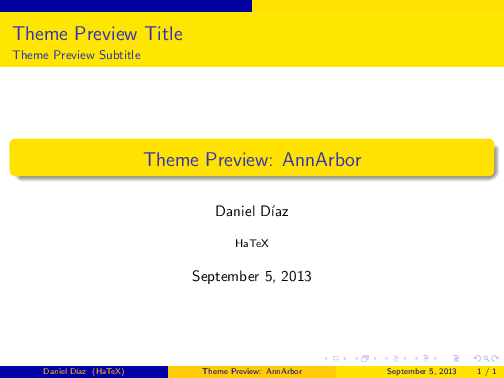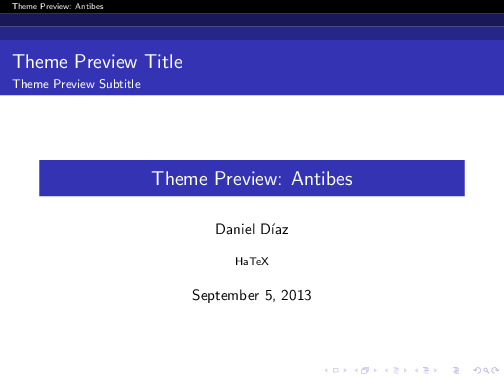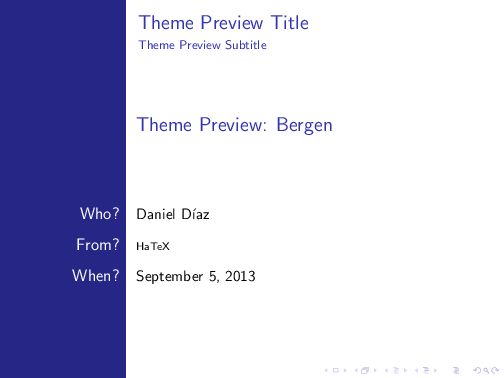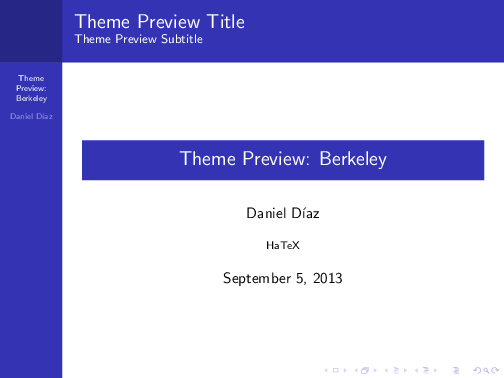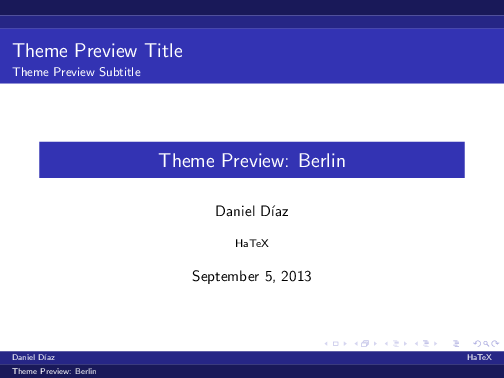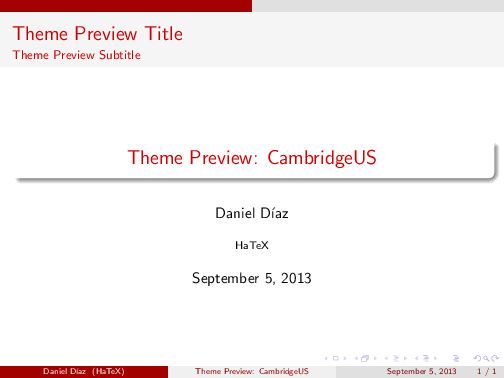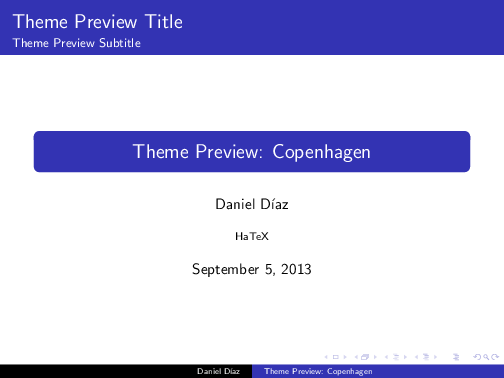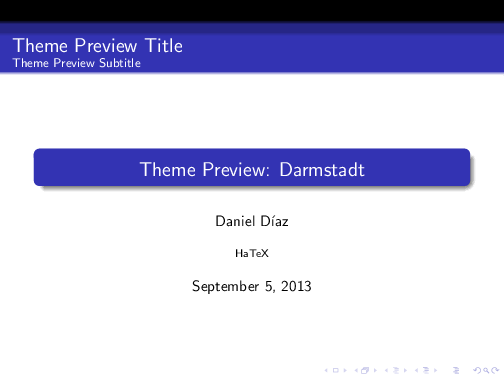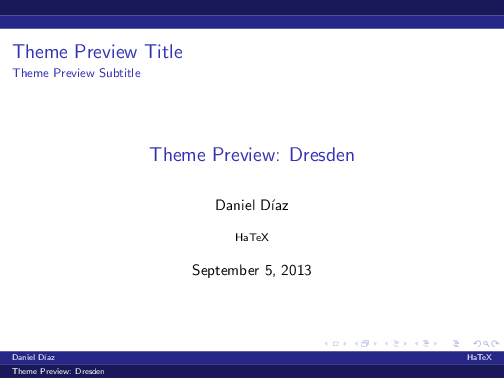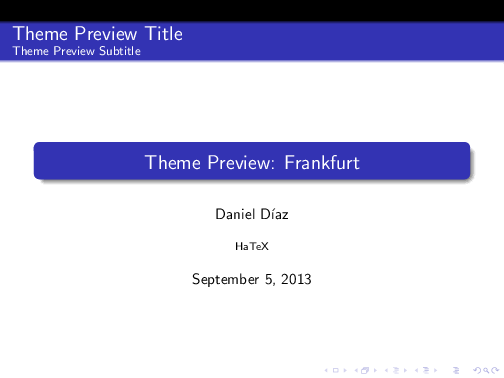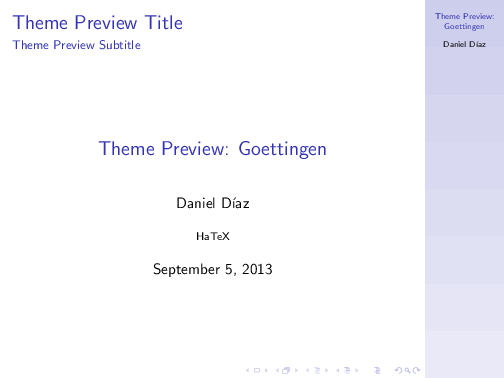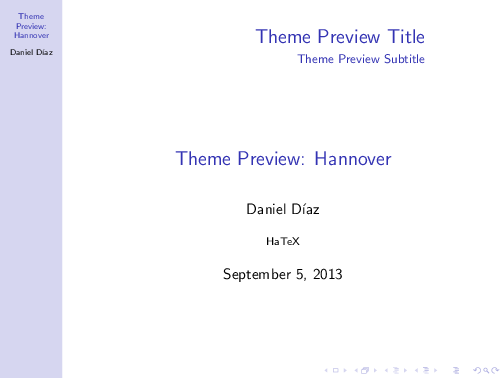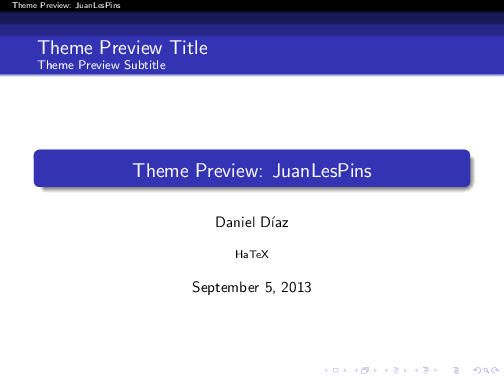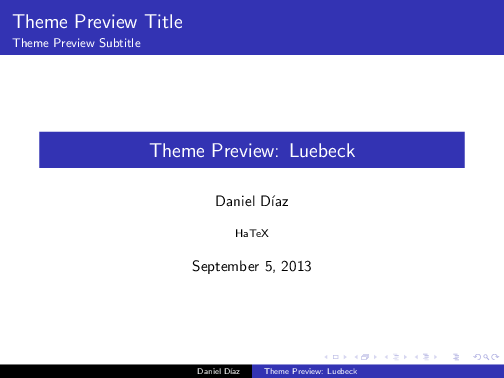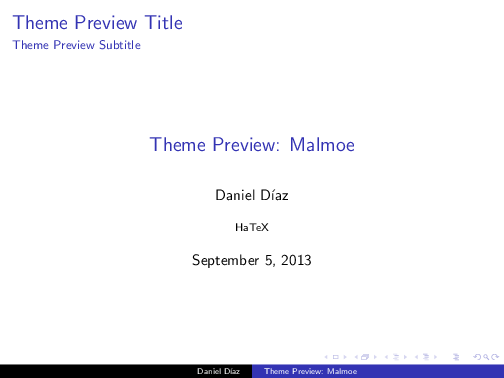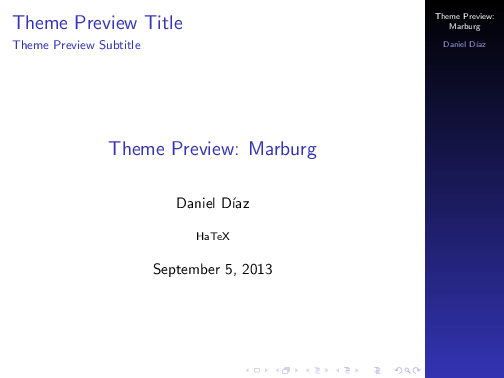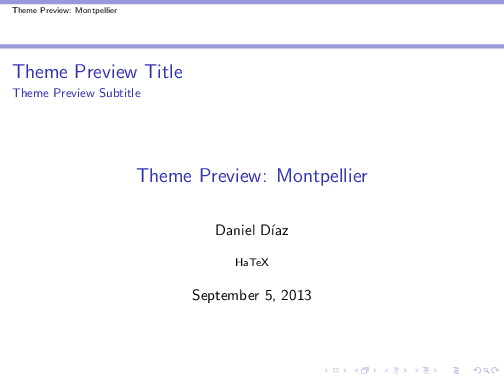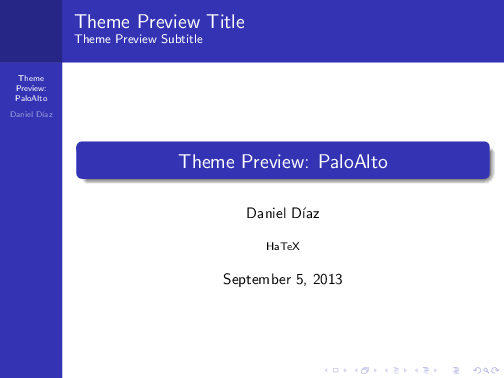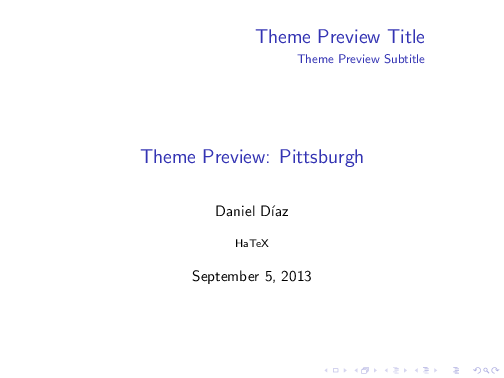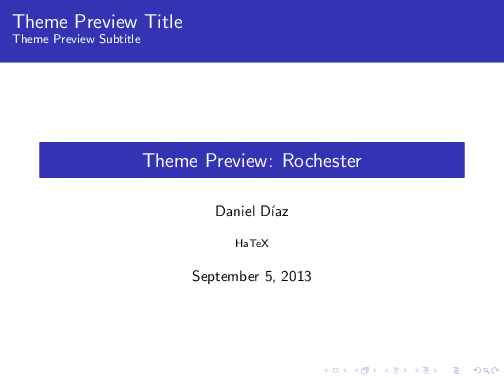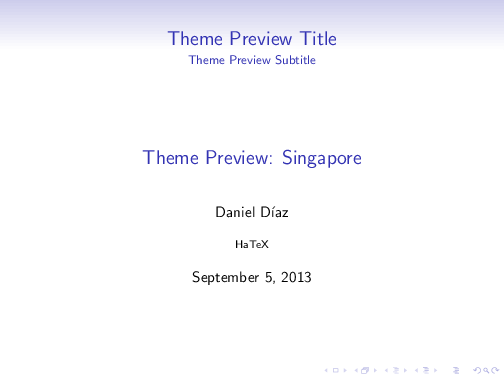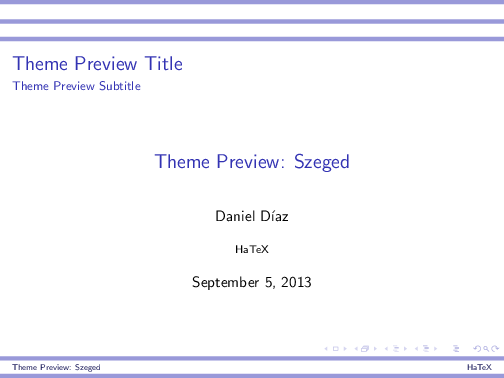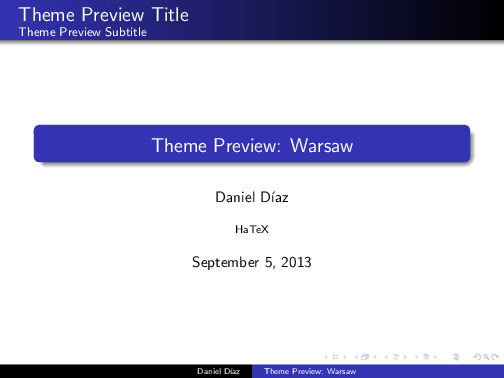| Safe Haskell | Safe |
|---|---|
| Language | Haskell2010 |
Text.LaTeX.Packages.Beamer
Description
Beamer is a LaTeX package for the creation of slides.
Each frame is contained within the frame function. Here is an example:
{-# LANGUAGE OverloadedStrings #-}
import Text.LaTeX
import Text.LaTeX.Packages.Beamer
mySlides :: Monad m => LaTeXT m ()
mySlides = do
frame $ do
frametitle "First frame"
"Content of the first frame."
frame $ do
frametitle "Second frame"
"Content of the second frame."
pause
" And actually a little more."The pause command in the second frame makes the second part of the text
to appear one screen later.
- beamer :: ClassName
- frame :: LaTeXC l => l -> l
- frametitle :: LaTeXC l => l -> l
- framesubtitle :: LaTeXC l => l -> l
- alert :: LaTeXC l => [OverlaySpec] -> l -> l
- pause :: LaTeXC l => l
- block :: LaTeXC l => l -> l -> l
- data OverlaySpec
- beameritem :: LaTeXC l => [OverlaySpec] -> l
- uncover :: LaTeXC l => [OverlaySpec] -> l -> l
- only :: LaTeXC l => [OverlaySpec] -> l -> l
- onslide :: LaTeXC l => [OverlaySpec] -> l -> l
- visible :: LaTeXC l => [OverlaySpec] -> l -> l
- invisible :: LaTeXC l => [OverlaySpec] -> l -> l
- beamercolor :: LaTeXC l => [OverlaySpec] -> l
- overprint :: LaTeXC l => l -> l
- data CoverOption
- data Opaqueness = Opaqueness [OverlaySpec] Float
- setbeamercovered :: LaTeXC l => [CoverOption] -> l
- usetheme :: LaTeXC l => Theme -> l
- data Theme
Beamer package
The beamer document class. Importing a package is not required. Example:
documentclass [] beamer
Beamer commands
frame :: LaTeXC l => l -> l Source #
A presentation is composed of a sequence of frames. Each frame is created with this function.
frametitle :: LaTeXC l => l -> l Source #
Set the title of the current frame. Use it within a frame.
framesubtitle :: LaTeXC l => l -> l Source #
Set the subtitle of the current frame. Use it within a frame.
alert :: LaTeXC l => [OverlaySpec] -> l -> l Source #
Highlight in red a piece of text. With the OverlaySpecs, you can specify the slides where
the text will be highlighted.
Arguments
| :: LaTeXC l | |
| => l | Title for the block |
| -> l | Content of the block |
| -> l | Result |
A block will be displayed surrounding a text.
Overlay Specifications
beameritem :: LaTeXC l => [OverlaySpec] -> l Source #
beameritem works like item, but allows you to specify the slides where
the item will be displayed.
uncover :: LaTeXC l => [OverlaySpec] -> l -> l Source #
With uncover, show a piece of text only in the slides you
want. On other slides, the text still occupies space and it is still
typeset, but it is not shown or only shown as if transparent.
only :: LaTeXC l => [OverlaySpec] -> l -> l Source #
With only the text is inserted only into the specified
slides. For other slides, the text is simply thrown away (it occupies
no space).
onslide :: LaTeXC l => [OverlaySpec] -> l -> l Source #
visible :: LaTeXC l => [OverlaySpec] -> l -> l Source #
beamercolor :: LaTeXC l => [OverlaySpec] -> l Source #
beamercolor works like color, but allows you to specify the slides where
the text will be bold.
overprint :: LaTeXC l => l -> l Source #
Inside the overprint environment, use onslide commands to
specify different things that should be shown for this environment on
different slides. Everything within the environment will be placed in
a rectangular area of the specified width. The height and depth of
the area are chosen large enough to acoommodate the largest contents
of this area.
Transparency Effects
data CoverOption Source #
Options for covering text
Constructors
| Invisible | Causes covered text to completely disappear |
| Transparent (Maybe Float) | Causes covered text to be typset in a transparent way |
| Dynamic | Makes all covered text quite transparent, but in a dynamic way. The longer it will take till the text is uncovered, the stronger the transparency. |
| HighlyDynamic | Has the same effect as dynamic, but the effect is stronger. | StillCovered [Opaqueness] -- ^ Specifies how to render covered items -- that have not yet been uncovered. | AgainCovered [Opaqueness] -- ^ Specifies how to render covered items -- that have once more been covered, that -- is, that had been shown before but are -- now covered again. |
Instances
data Opaqueness Source #
Percentage of opaqueness for the specified overlays. In
'Opaqueness overlaySpecification percentageOfOpaqueness' the
overlaySpecification specifies on which slides covered text should
have which percentageOfOpaqueness. Unlike other overlay
specifications, this overlaySpecification is a relative overlay
specification.
Constructors
| Opaqueness [OverlaySpec] Float |
Instances
setbeamercovered :: LaTeXC l => [CoverOption] -> l Source #
The command setbeamercovered allows you to specify in a quite
general way how a covered item should be rendered.
Themes
usetheme :: LaTeXC l => Theme -> l Source #
Set the Theme employed in your presentation (in the preamble).
